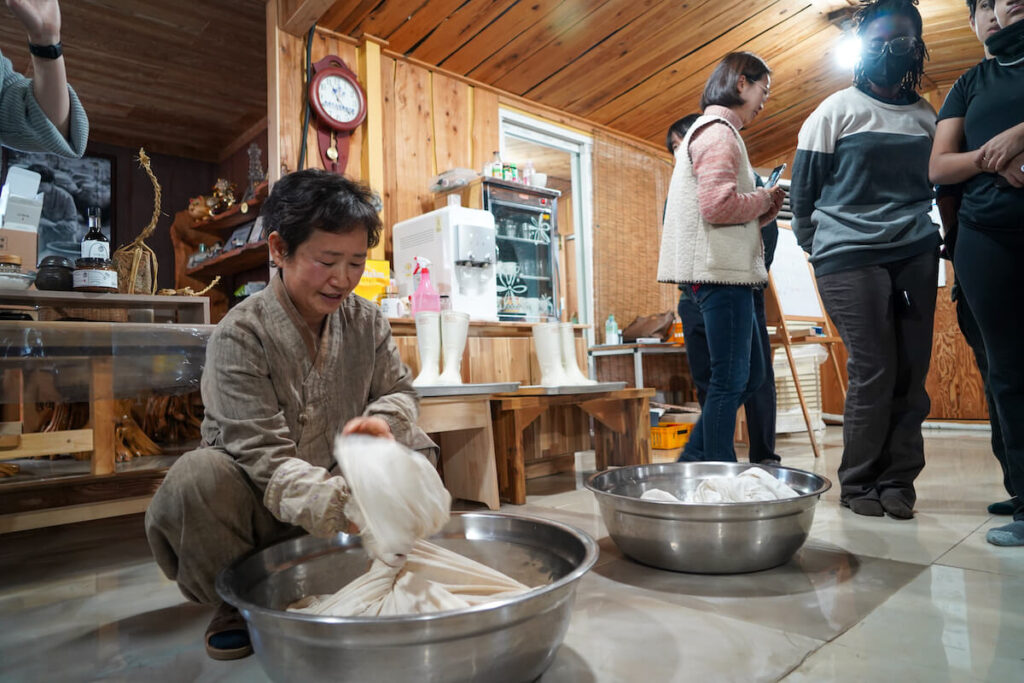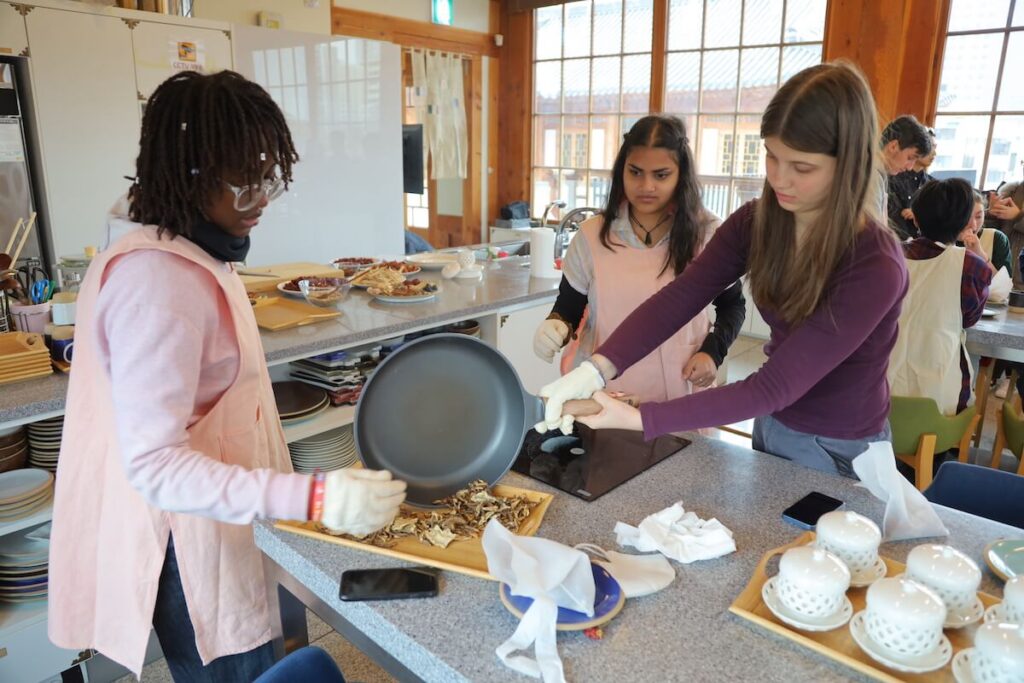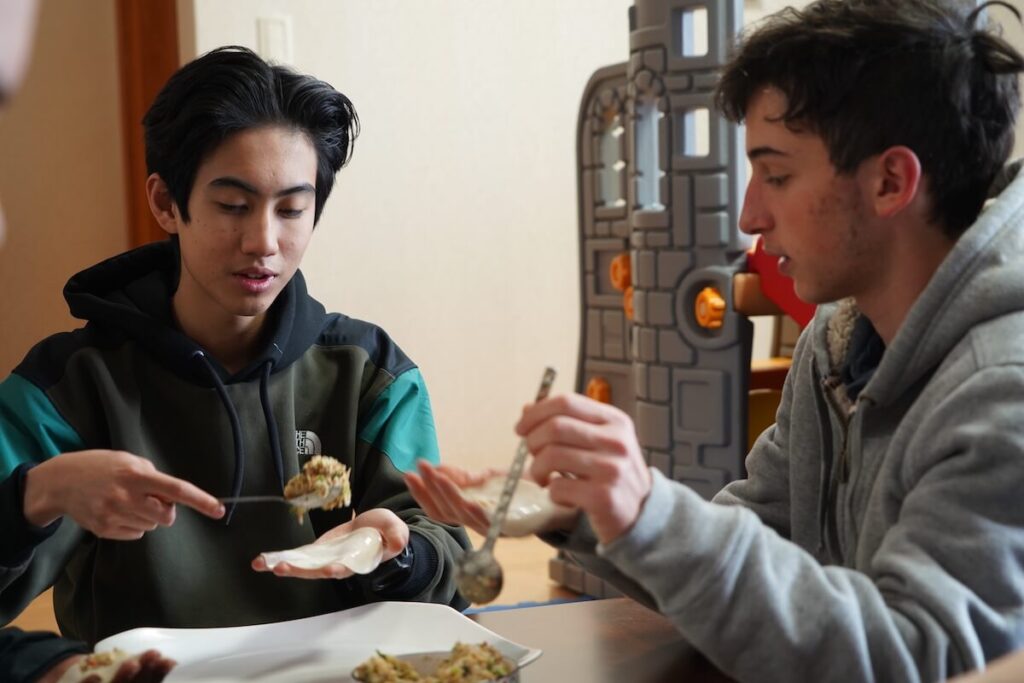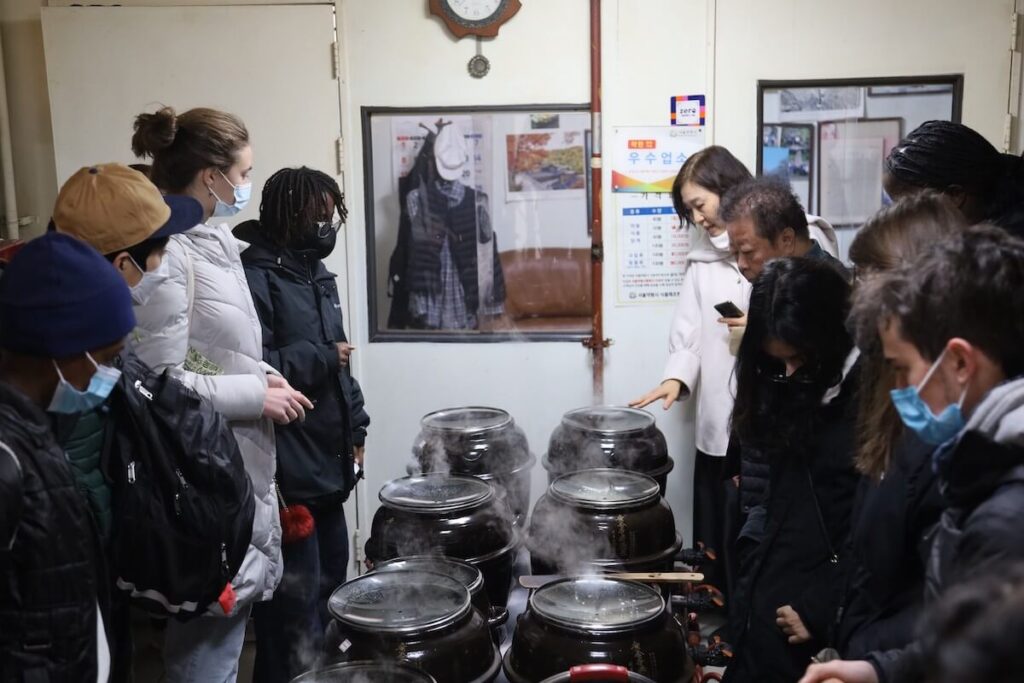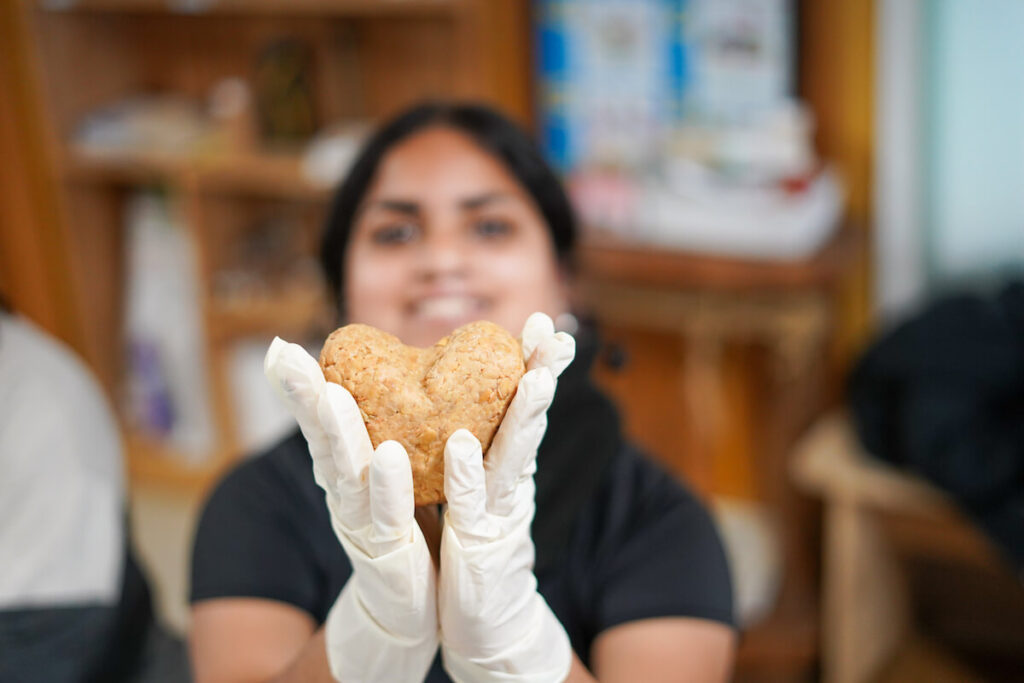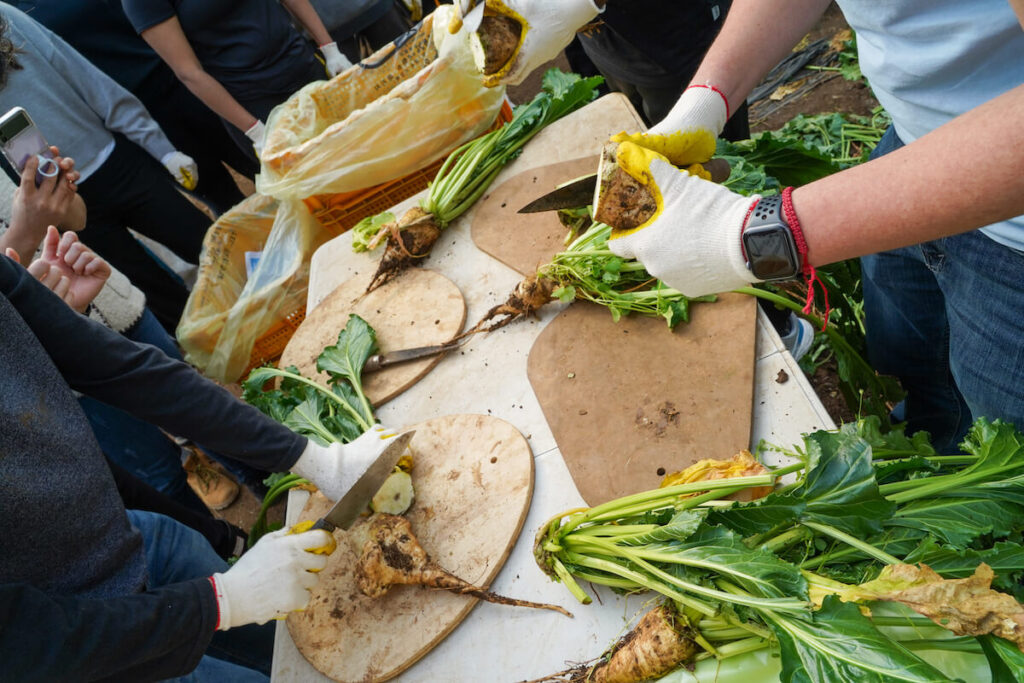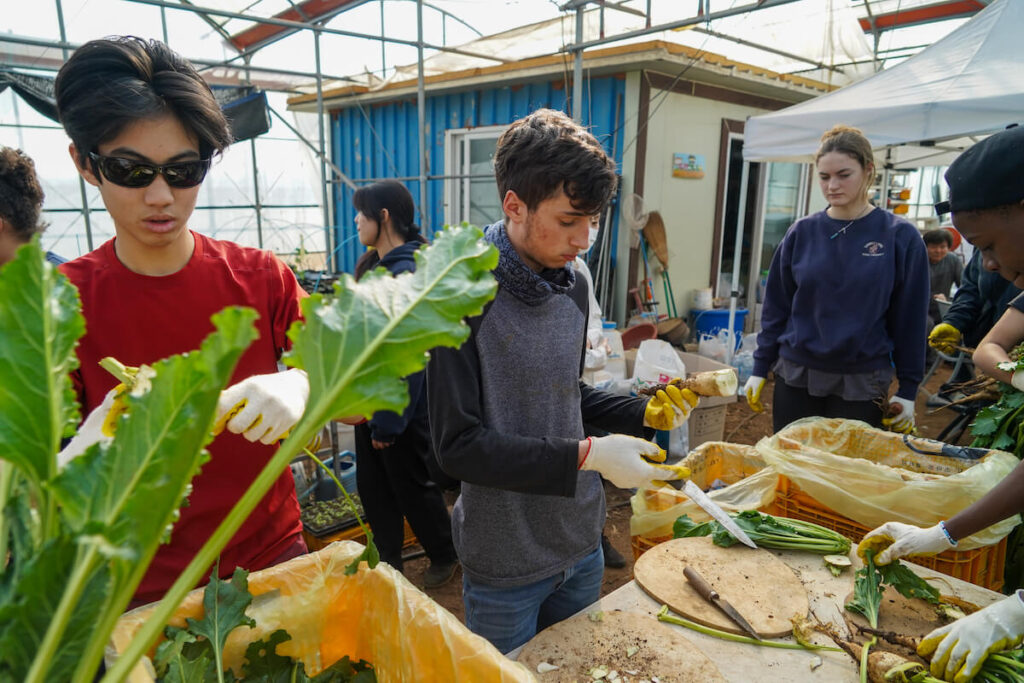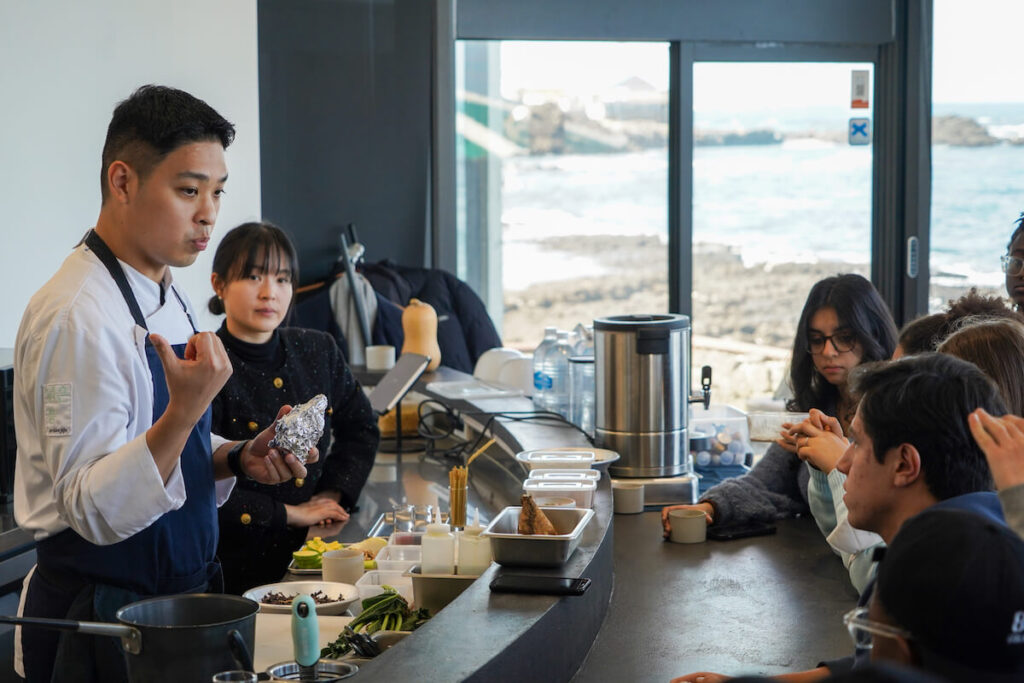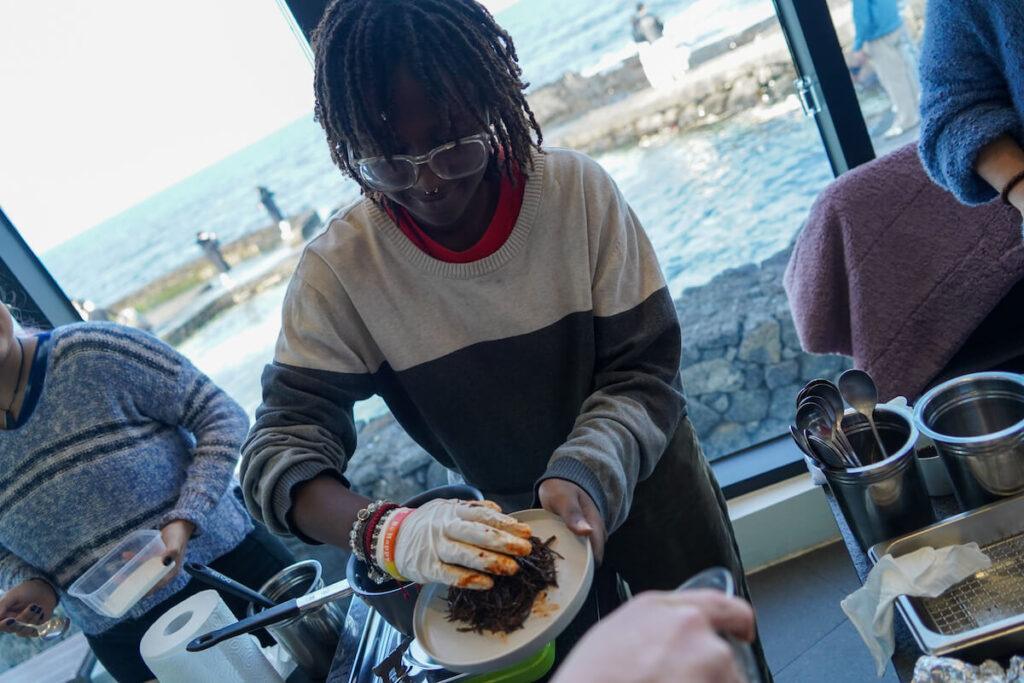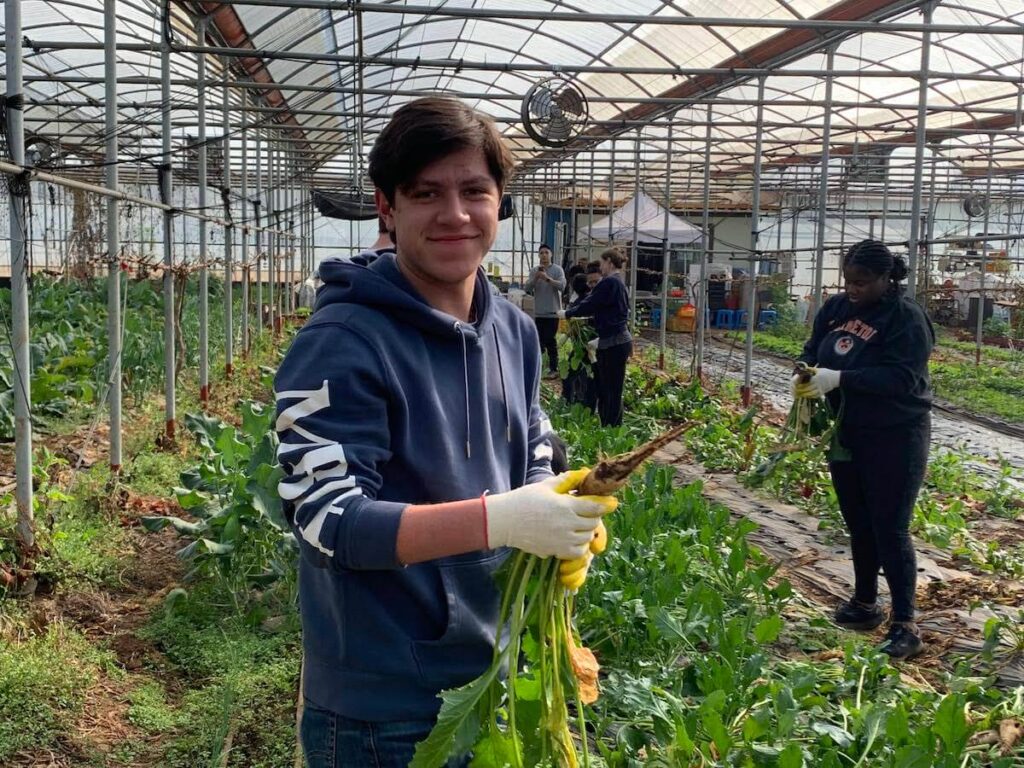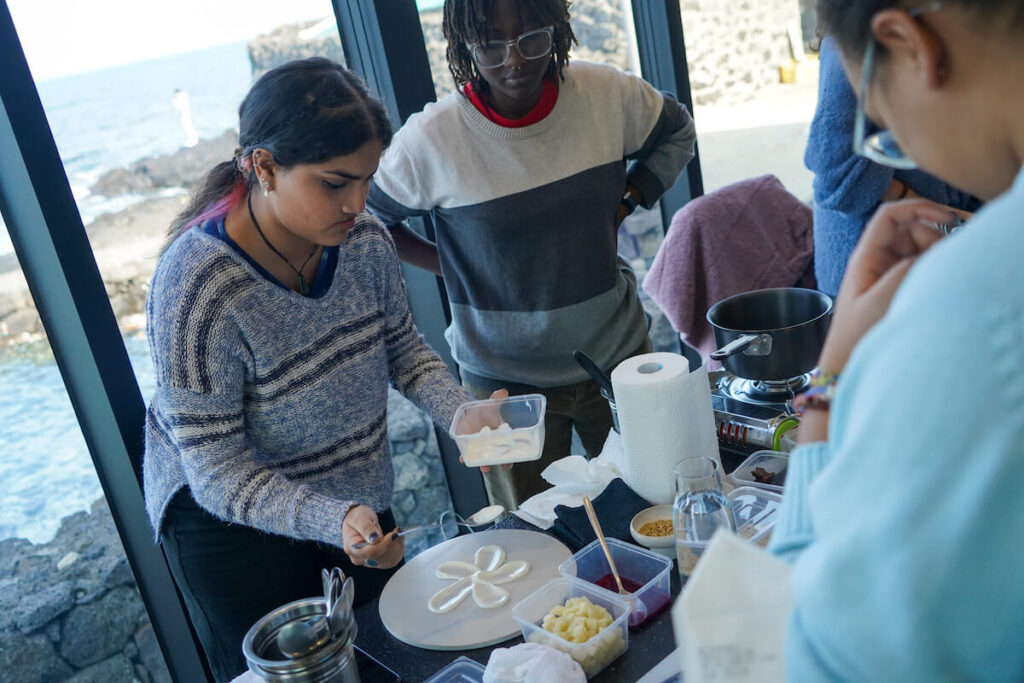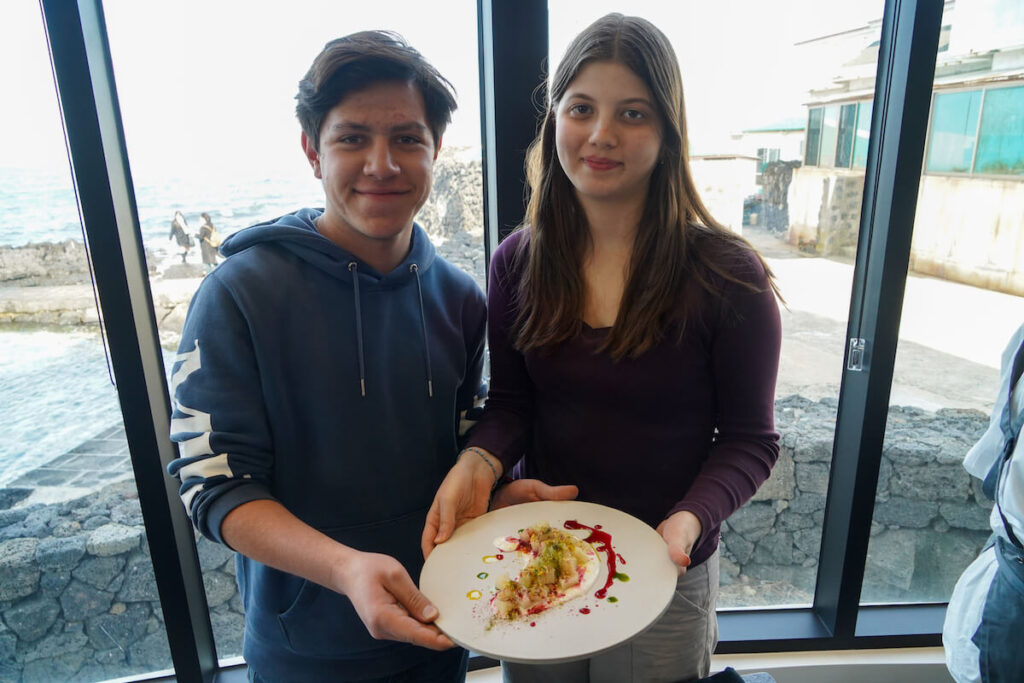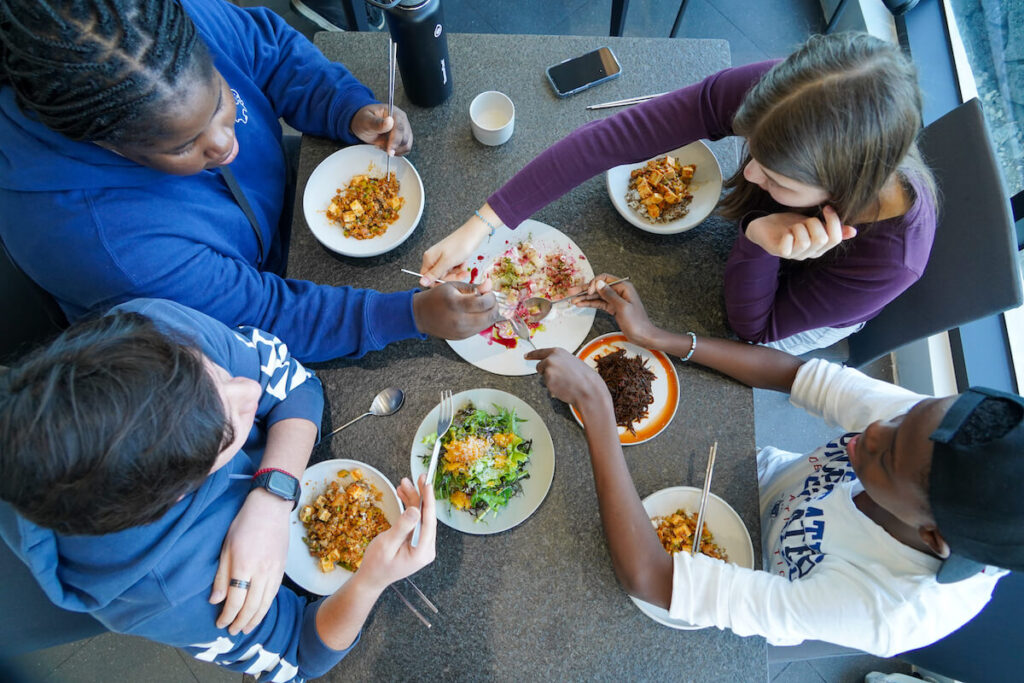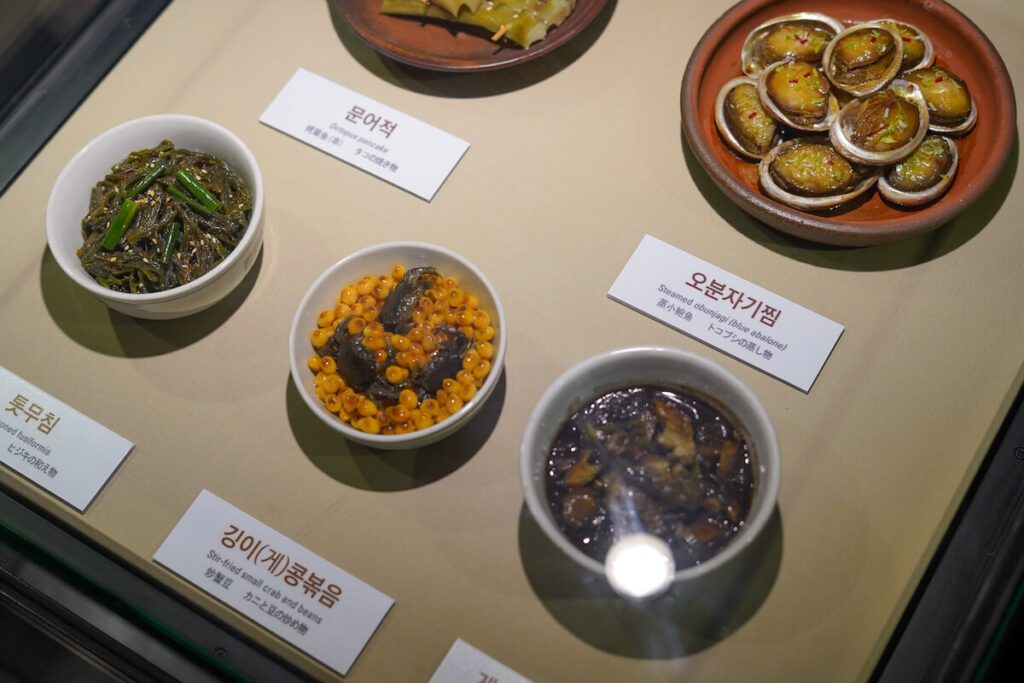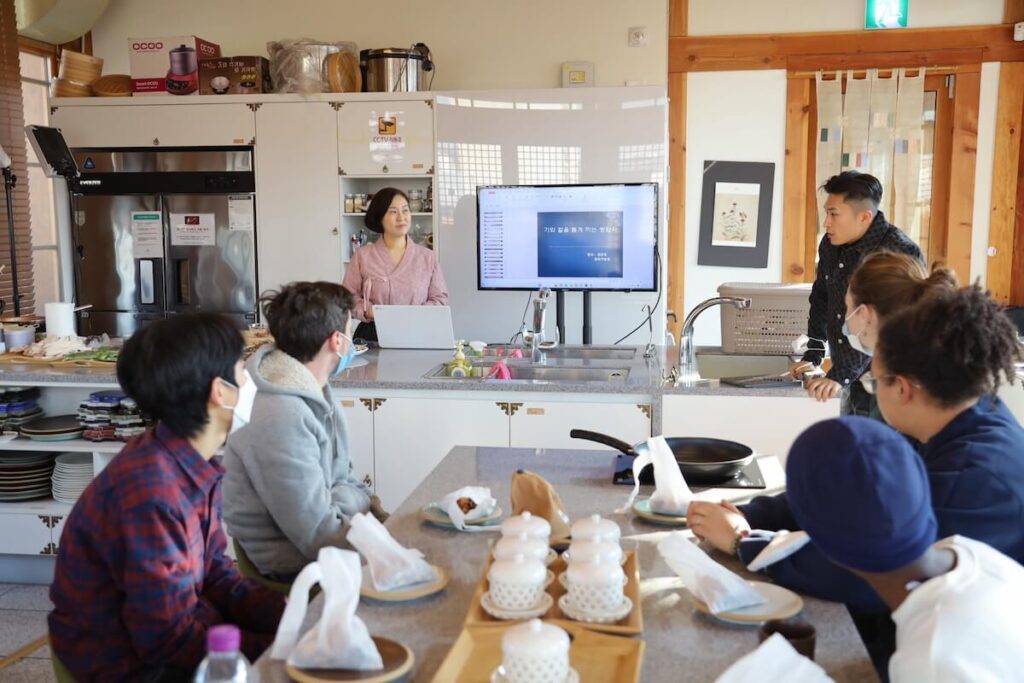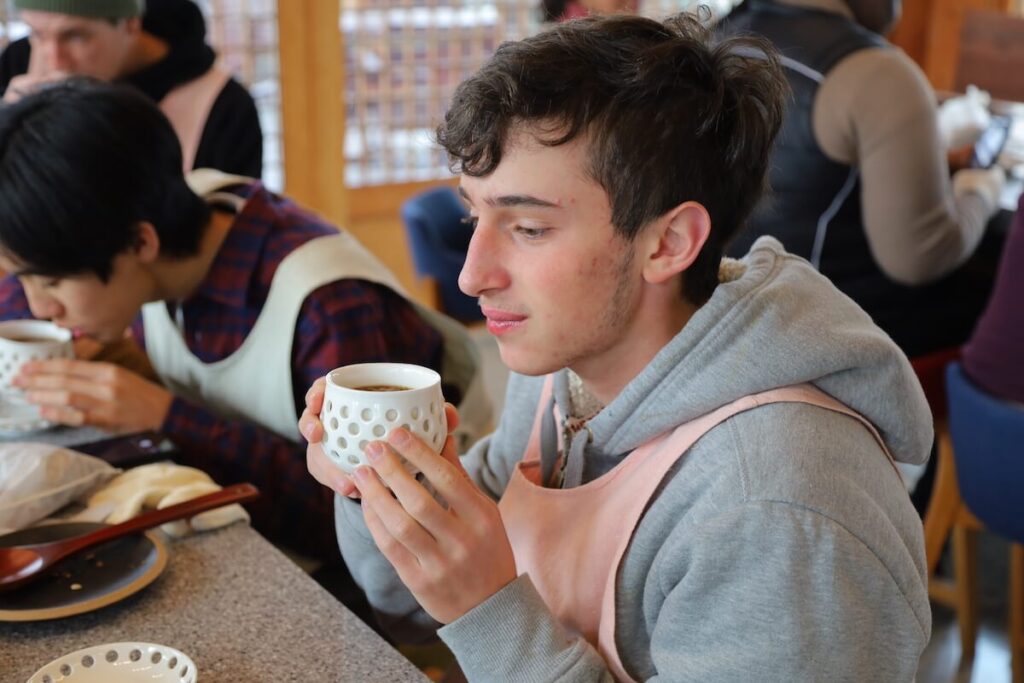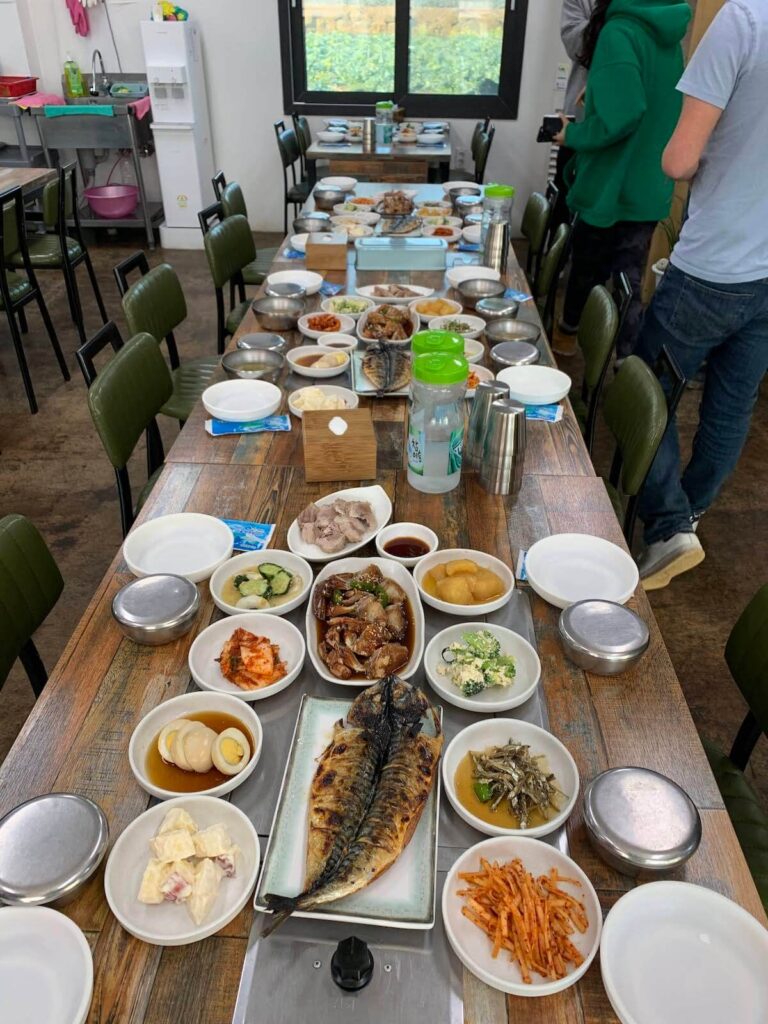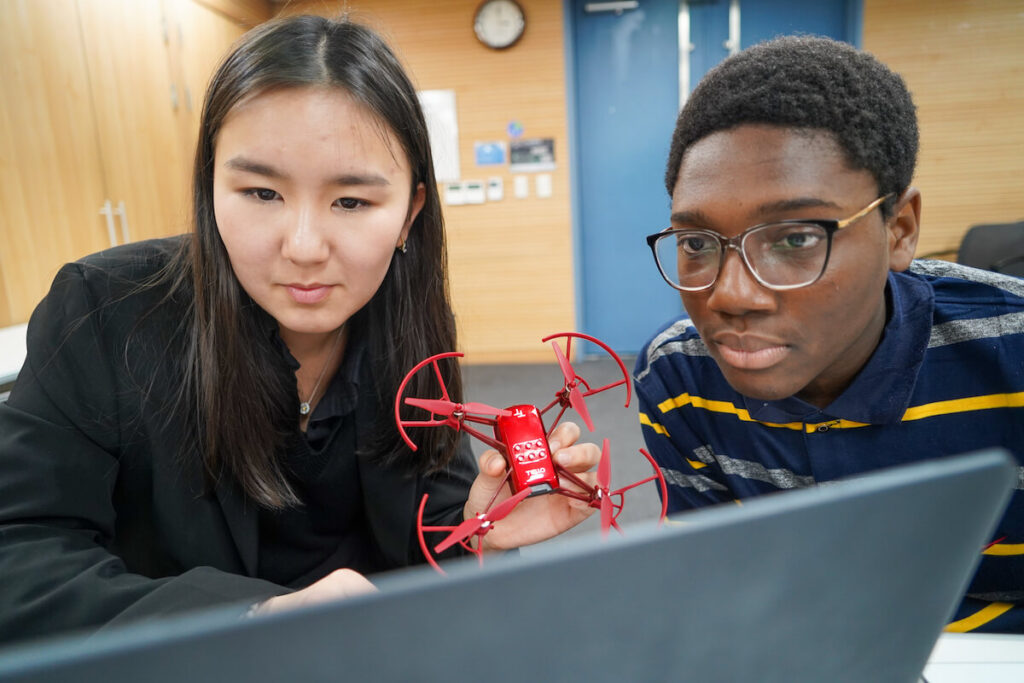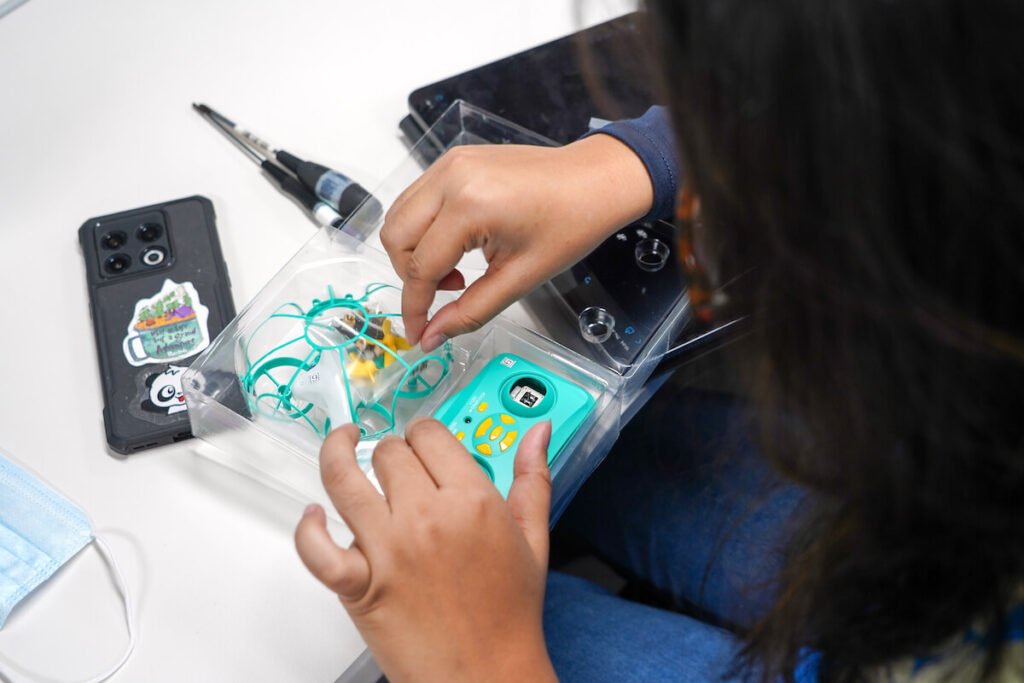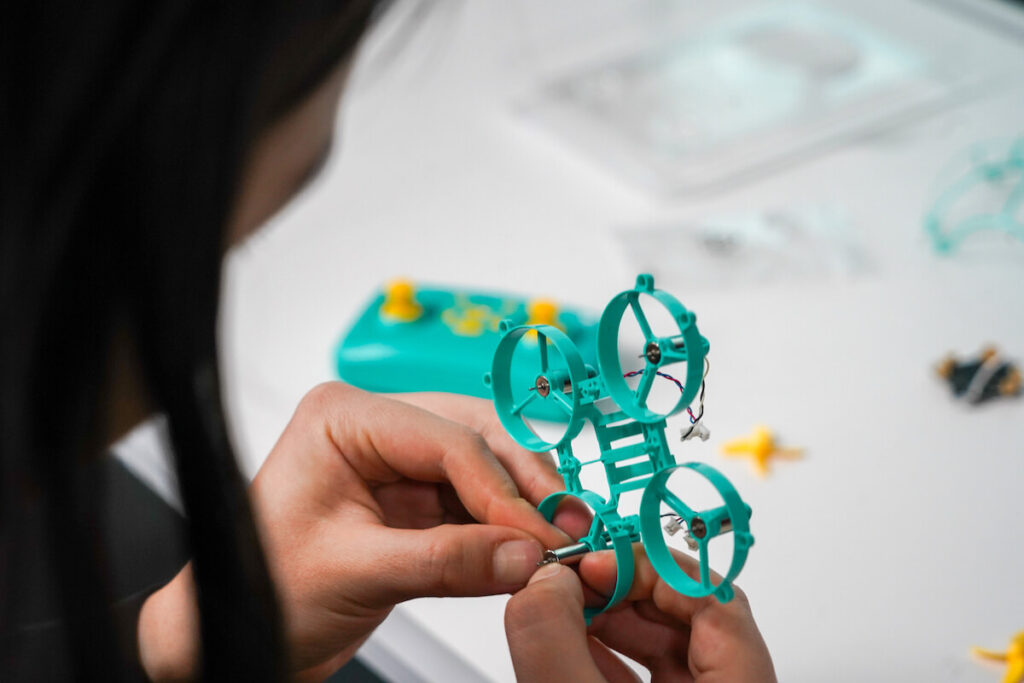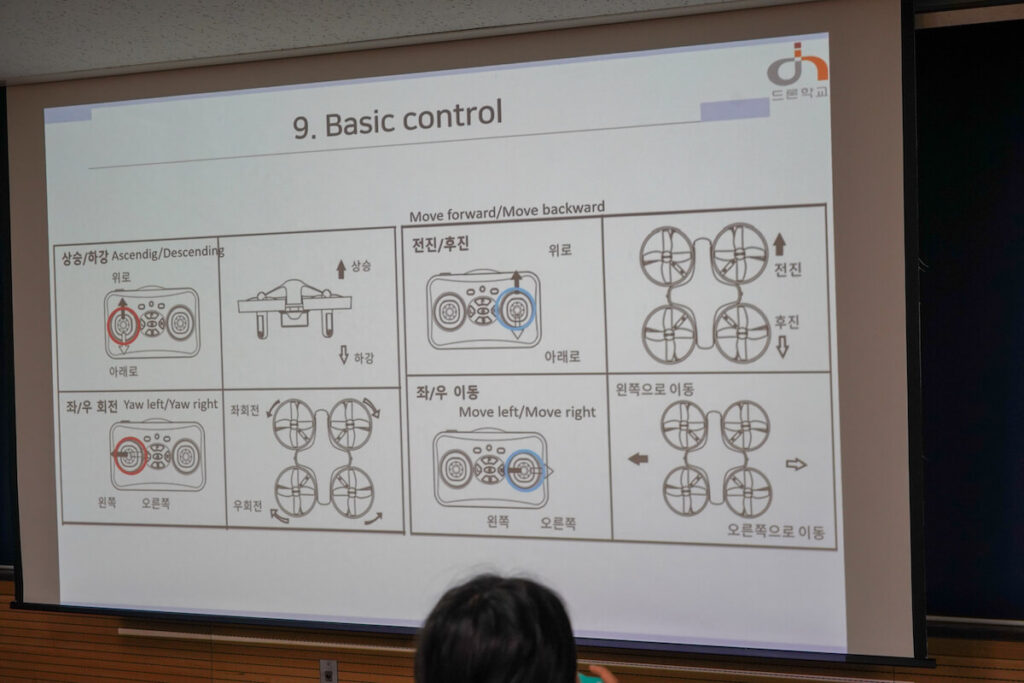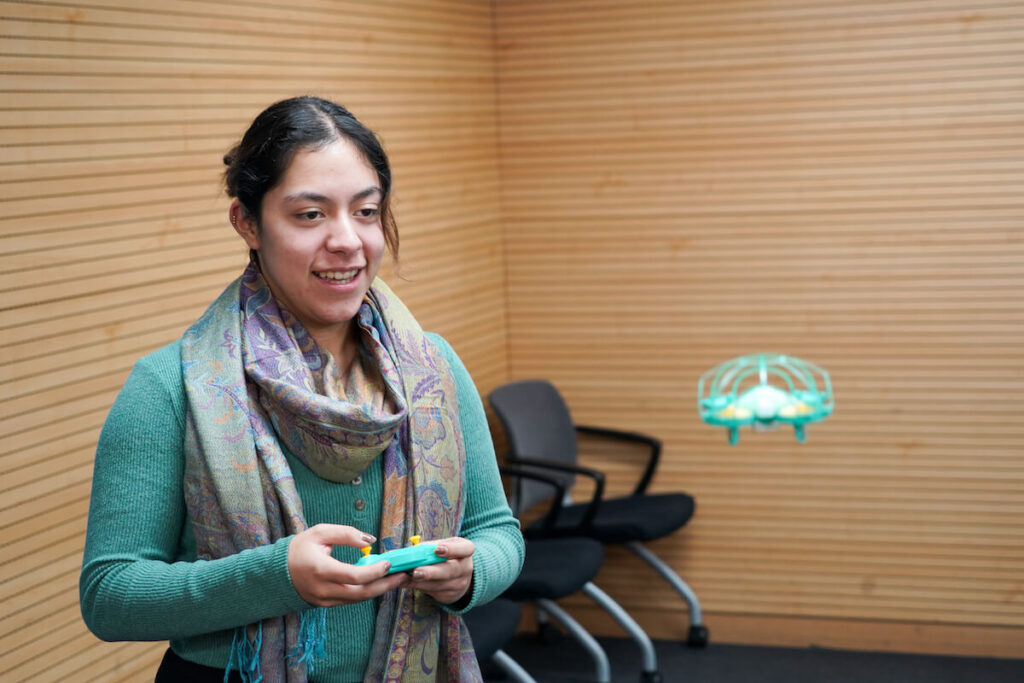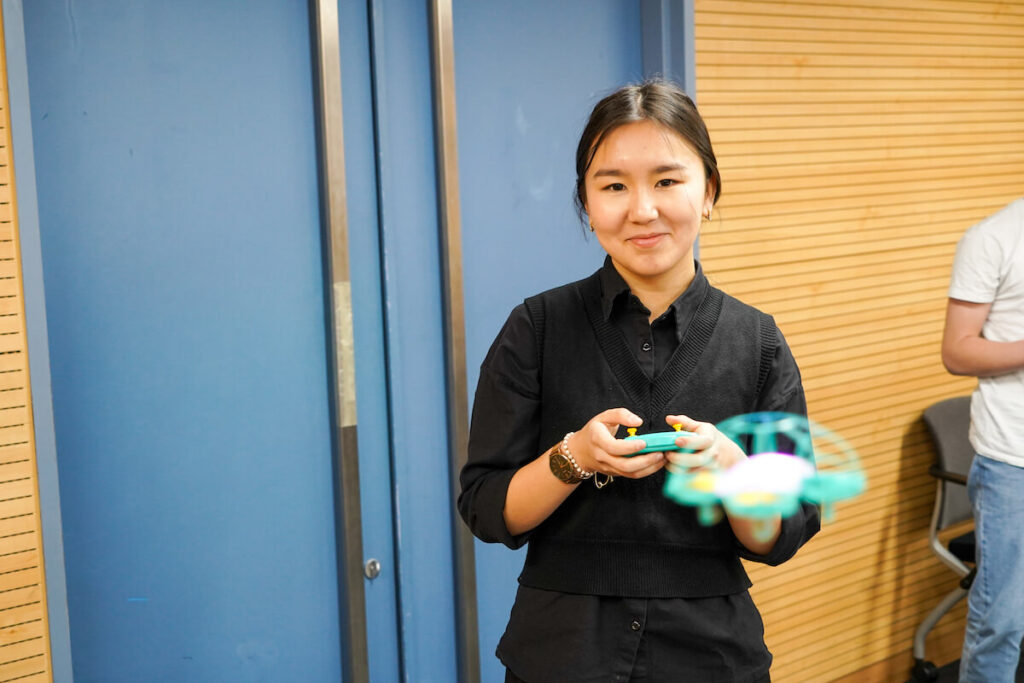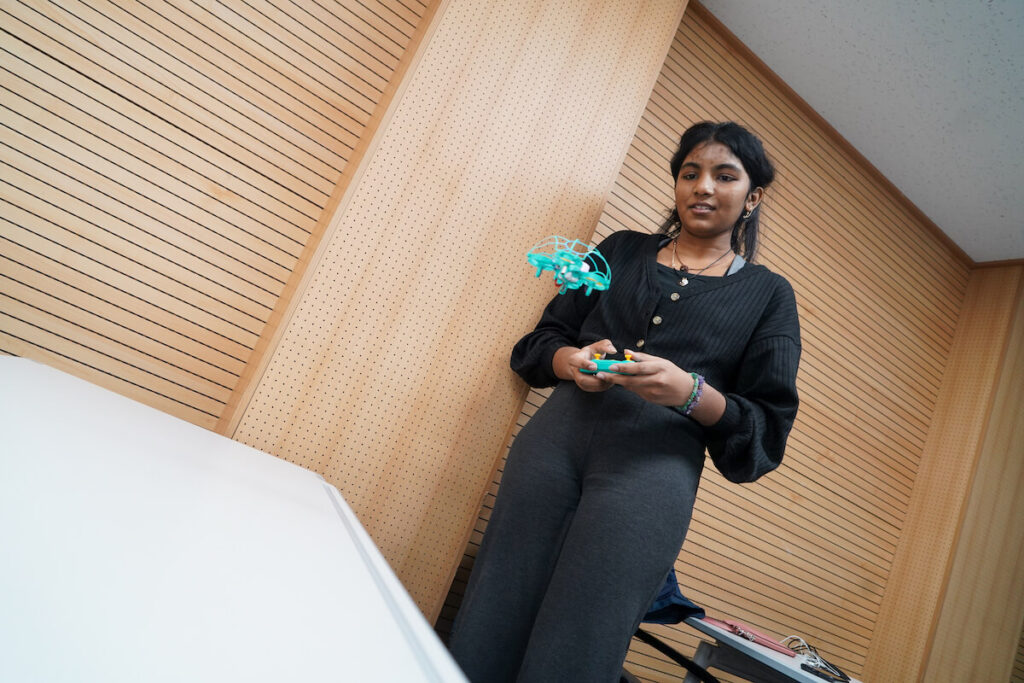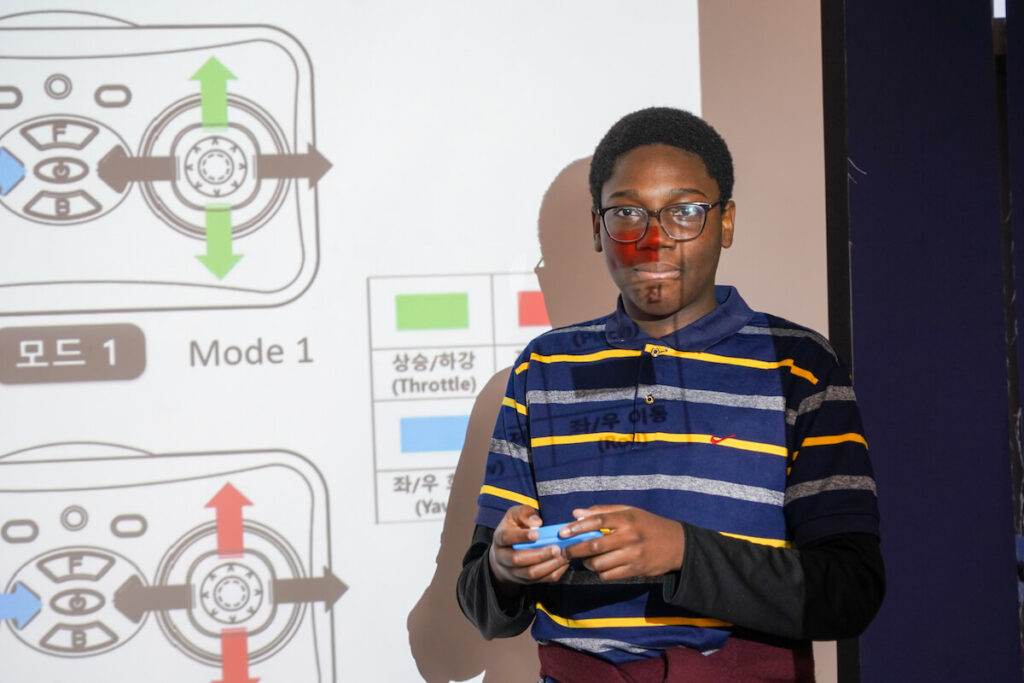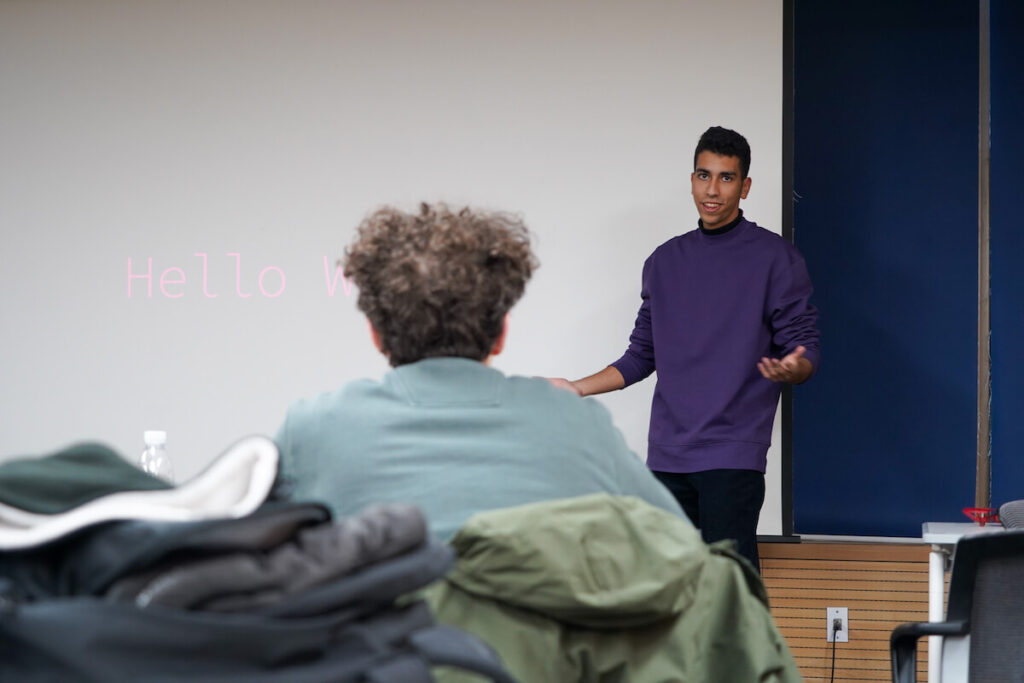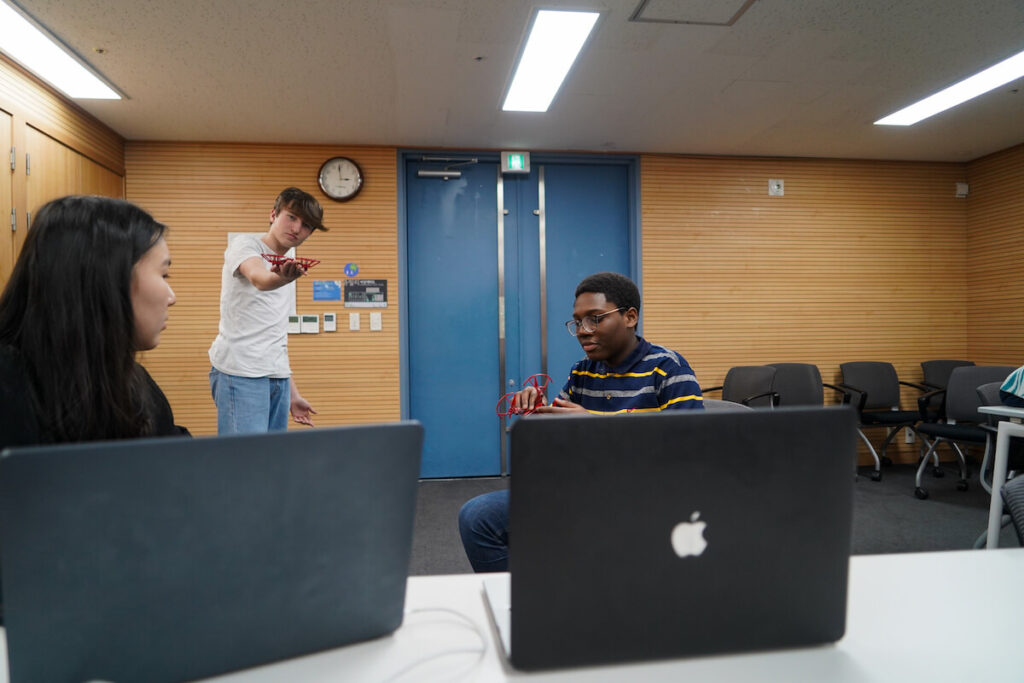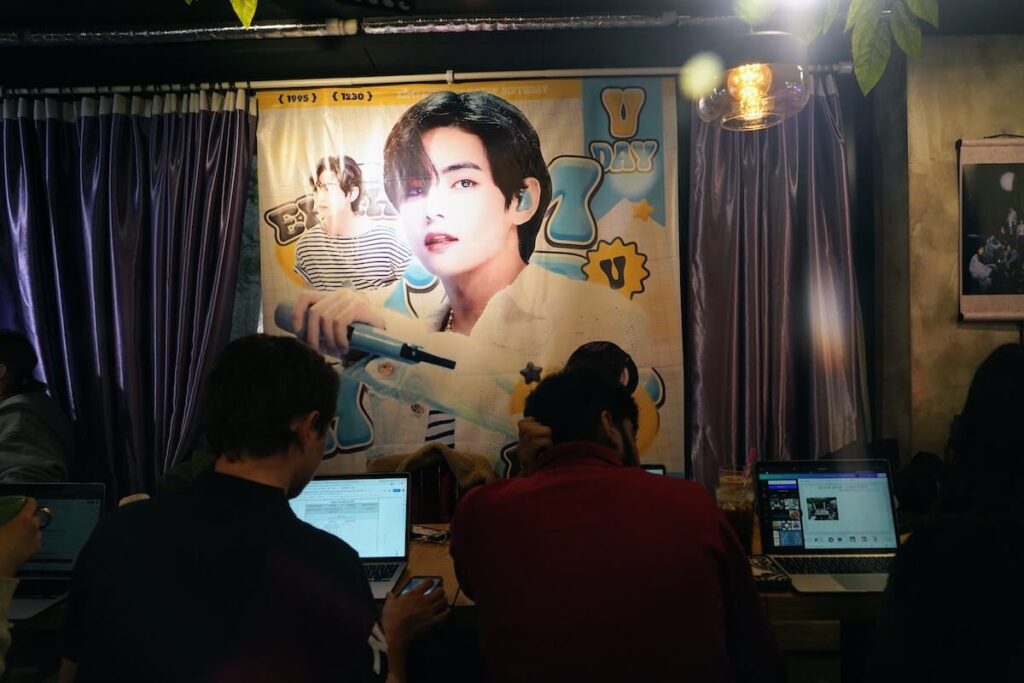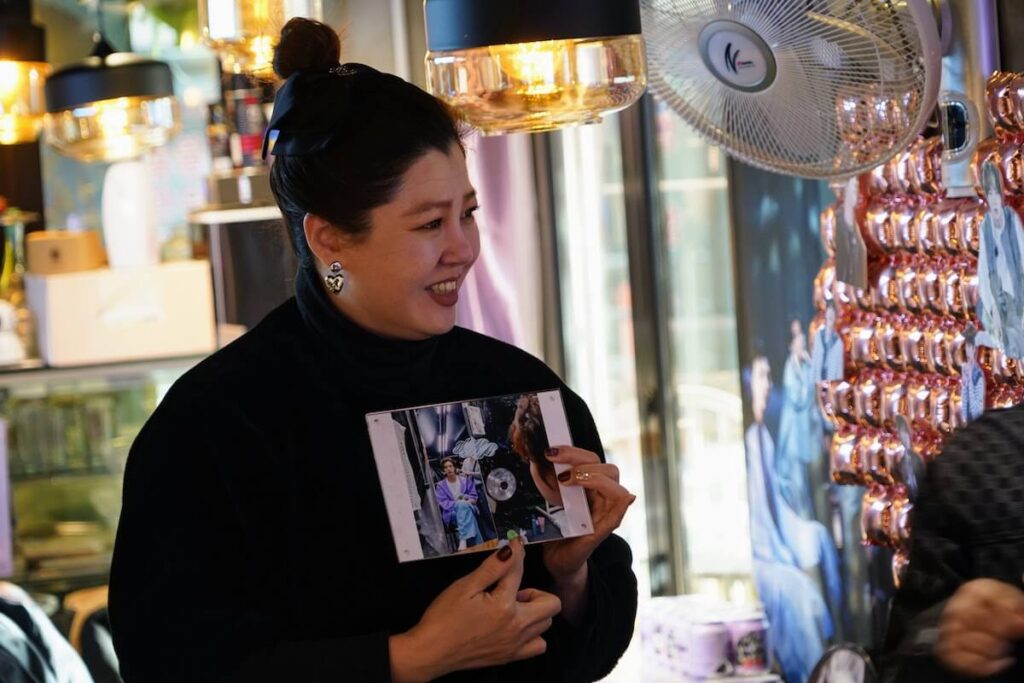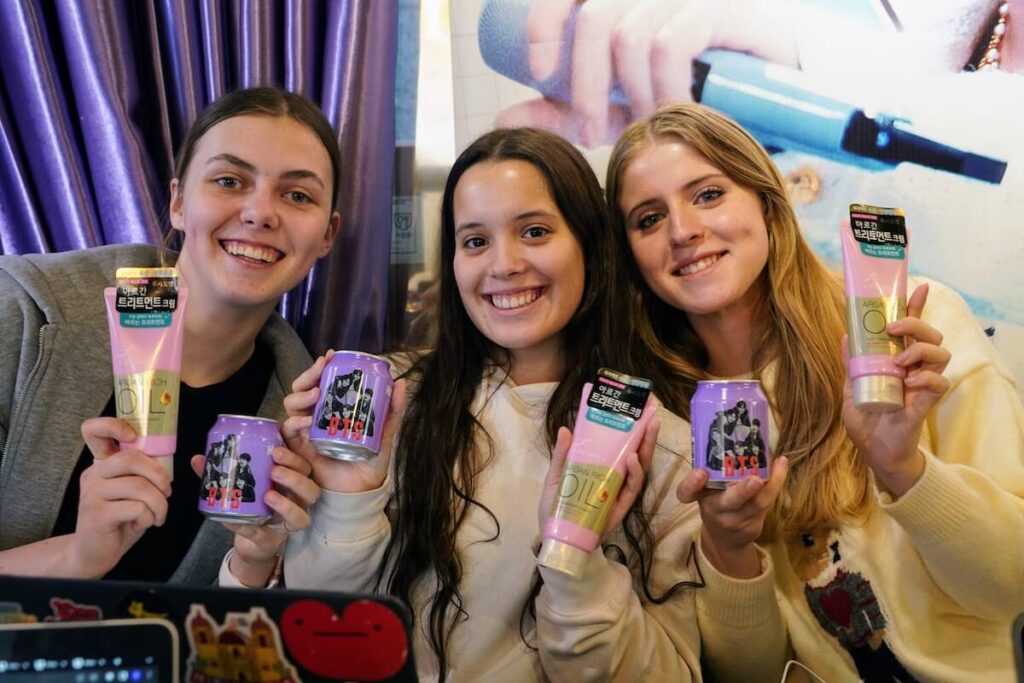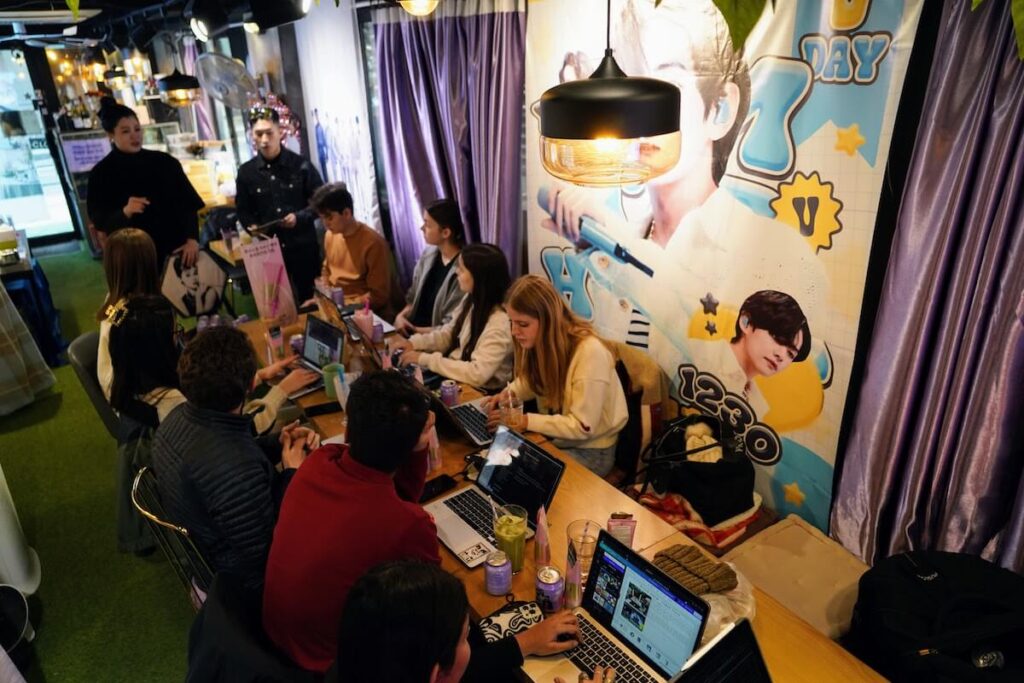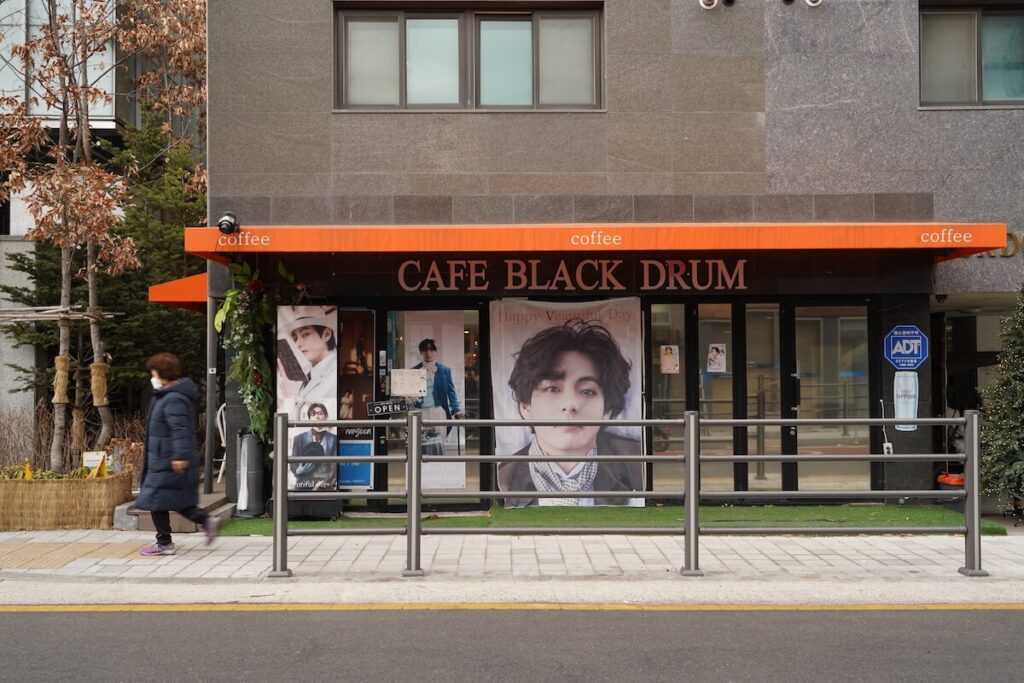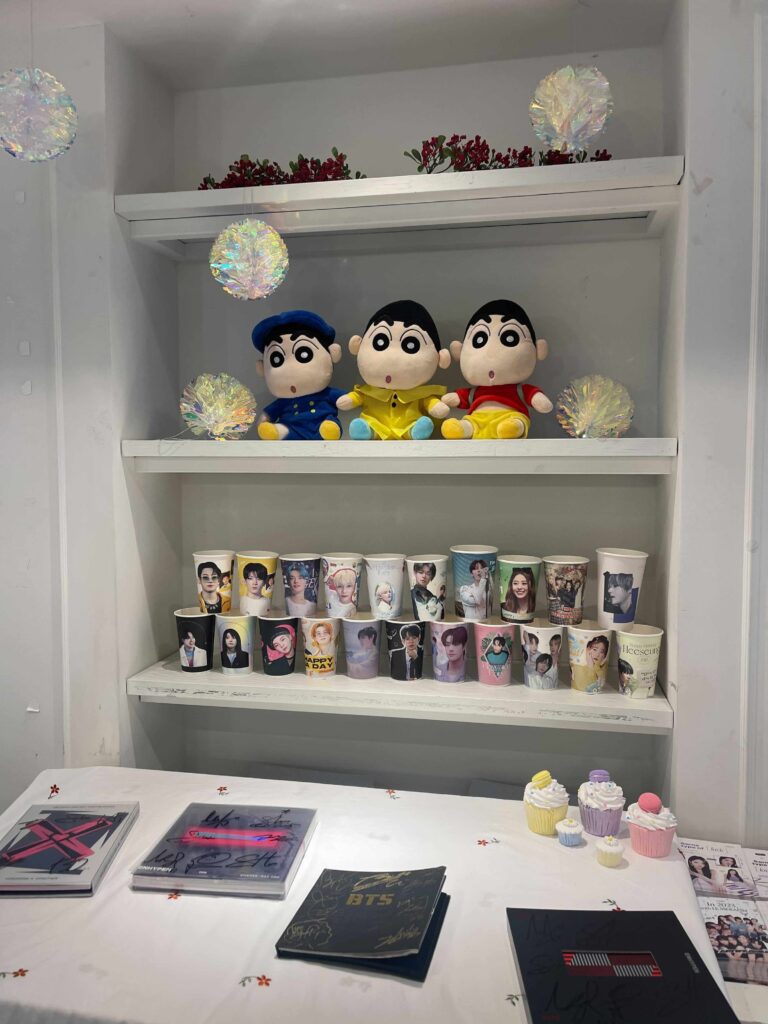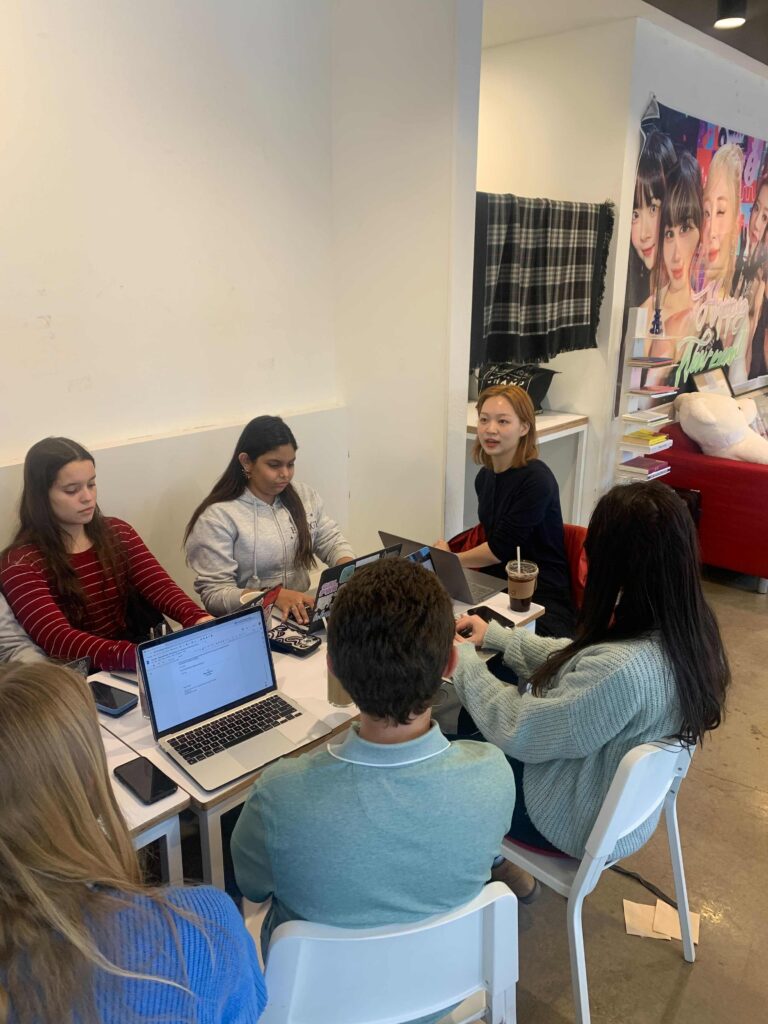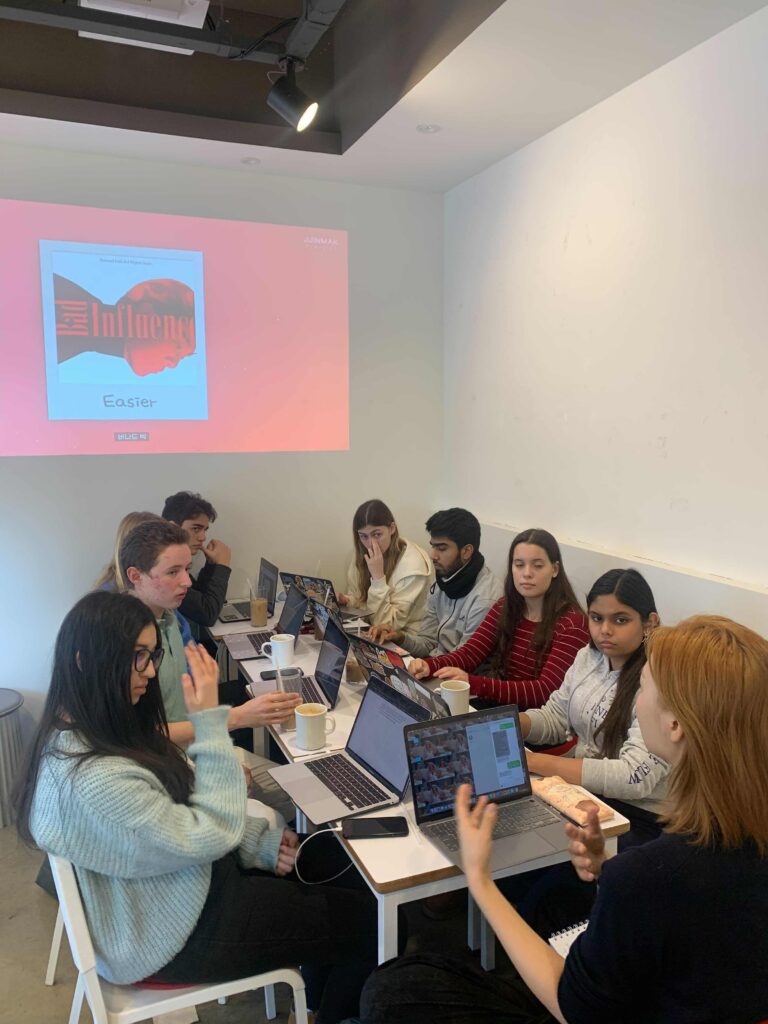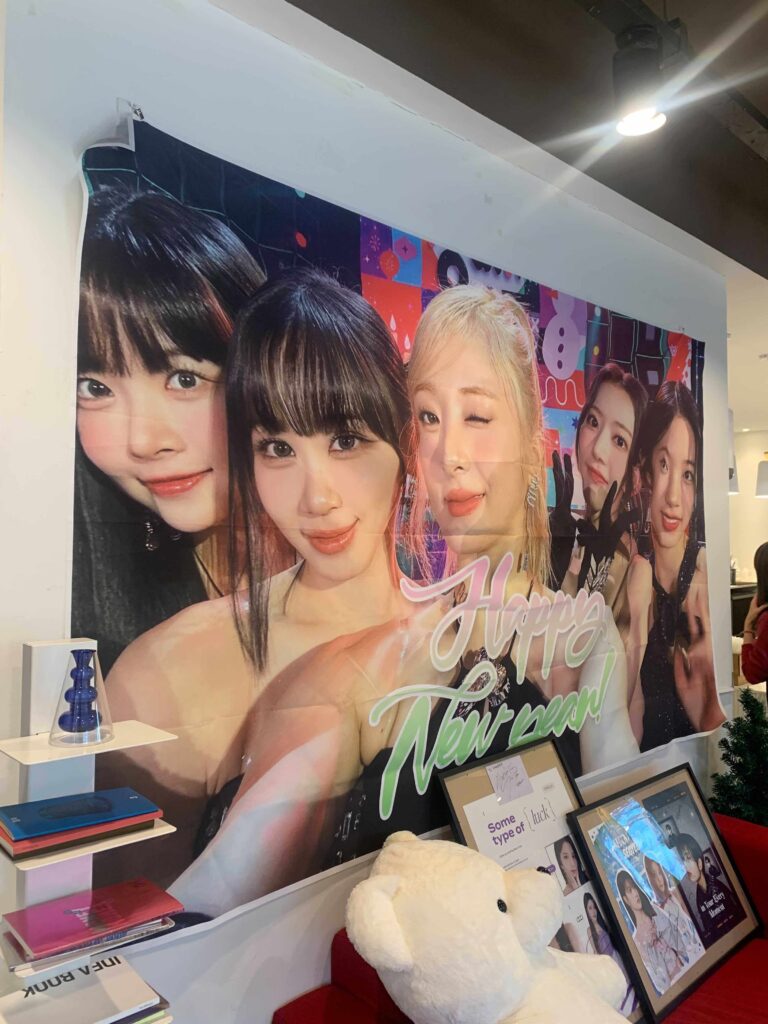Are you interested in applying to THINK Global School but aren’t quite sure if it’s right for you? That’s OK! It’s a decision that shouldn’t be taken lightly. To help you in your application process, we’ve put together a list of five things we feel every applicant to THINK Global School should know. We hope you find them helpful. 1) You’ll gain an education by living and learning in the...
Read MoreAt THINK Global School, the world is our classroom, and four times a year, our students board a plane to learn through hands-on experiences, practice global citizenship, and participate in a wide range of academic projects.
For their third term of the 2022-23 school year, our 30 CM2 students traveled to Seoul, South Korea. Immediately they were met with a captivating blend of ancient traditions and cutting-edge modernity, with centuries-old palaces and temples harmoniously nestled below gleaming skyscrapers. South Korea’s embrace of its past and eager march towards the future was one of many reasons for our visit — so many project opportunities present themselves, and indulging in mouthwatering culinary delights like kimchi, bulgogi, and bibimbap certainly doesn’t hurt either.
This term, students had three teacher-led project modules to select from. If you are unfamiliar with project-based learning, you can learn more about its benefits here. The modules were:
- K-Pop Miracle, which focused on the fields of marketing and psychology by focusing on, you guessed it, K-Pop bands.
- Drone to Busan, which focused on autonomous technology and coding to program a drone to perform a task that provides a benefit for the greater good
- Yak Sik Don Won, which explored Korean cuisine and sustainability through the lens of nutrition
You can find a summary for each of the modules below. Like to learn more about our student outcomes? You can watch their PBL showcase here.
Yak Sik Don Won: Exploring Korean Cuisine and Sustainability through Nutrition
Driving Question: How can we design modern-day nutritional meal plans that consider historical traditions, medicinal food properties and sustainable food systems?
Korean cuisine has a rich history and culture, so it’s no surprise that food is central to the Korean way of life. In the Yak Sik Don Won module, participants learned about Korean gastronomy, sustainability, nutrition, and the Yak Sik Don Won philosophy, which emphasizes that health starts with food and that medical treatment should only be sought if food cannot heal. By focusing on this philosophy, students gained a deeper understanding of how anthropology, environmental systems, and nutrition all overlap and relate.
By exploring Korean cuisine and sustainability through the lens of nutrition, students were able to appreciate the cultural significance of food and how it can be used to promote health and well-being. During their time in South Korea, students participated in cooking excursions, tasted and reviewed food, learned about new ingredients, and discovered how different colored foods help different body parts. They also learned about the macro and micronutrients in food and how Koreans traditionally prepare their food.
One memorable experience was working with a zero-waste restaurant on Jeju Island, which is notable for its unique cuisine. The restaurant, LastSpring, introduced students to sustainable farming, Korean kitchen practices, and the value of zero-waste methods, and how every single part of an ingredient can be used for something. These concepts have also been explored during outings in other countries, including the United Arab Emirates and Botswana.
“The Yak Sik Don Won module has been a rollercoaster of new experiences, learning, and good times as well.” -Abner M.
For their final projects, students created meal plans for specific target audiences based on their nutritional needs. Abner M. created a meal plan for footballers with heart conditions, while Diego M. focused on marathon runners. By considering access to ingredients and their origin, as well as sustainability, students created meals that not only met the nutritional needs of their target audiences but also had the potential to benefit their own overall health.
Overall, the module was a great learning experience that allowed participants to explore the intersection of Korean cuisine, sustainability, and nutrition.
Drone to Busan: A Look into Autonomous Technology and Coding
Driving Question: How effectively am I able to utilize the latest drone technology to solve a problem or create a service, whilst considering the ethical and/or societal repercussions of automated technologies?
Drone technology has rapidly advanced in recent years, offering a wide range of applications in different industries. The STEM-themed Drone to Busan module focused on autonomous technology and coding, and students improved their programming skills by working with Scratch and Python to control drones while learning about their physics and ethics.
One project, by student Bido H. who also served as a programming educator, involved brain-computer interfacing with Tello Drones, which could benefit people with physical disabilities. Another project, by students Raf and Raya, involved modeling a firefighting drone programmed to detect people in forests, which could prove useful in emergency situations. And for her project, Marily coded a drone to create an original art piece incorporating long-exposure photography.
K-Pop Miracle Module: Exploring Marketing and Psychology in a K-POP Themed Cafe
Driving Question: How can we apply the psychology of Kpop marketing success to strategize influence and growth for a local business in Seoul?
Korean pop, or K-Pop, has taken the world by storm with its catchy music, high-energy dance moves, and stylish fashion. But behind this global phenomenon lie highly strategic and well-executed marketing campaigns. In the K-Pop Miracle Module, students explored the fields of marketing and psychology by creating, developing, and executing a comprehensive marketing campaign for a K-Pop-themed cafe.
The module begins by exploring K-POP on a macro level, providing insight into digital marketing roles, analyzing existing marketing campaigns, and delving into neuromarketing and consumer behavior. Students then applied this knowledge to create a marketing campaign for their client, a local K-Pop cafe, including content creation on social media and paid advertisements to promote the cafe.
One of the highlights of the module was the opportunity to organize a BTS event, allowing students to engage with fans and conduct market research on the cafe’s customers. Students practiced data analysis and spreadsheet skills through this process, making the learning experience more practical and engaging.
Overall, the K-Pop Miracle Module was a fun and engaging way to explore marketing and psychology while learning about Korean culture and, perhaps more importantly, gain skills that will be valuable in a wide range of careers.
